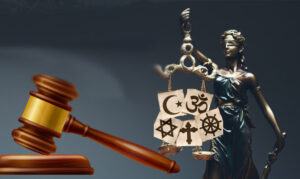Topics for Group Discussion
Group Discussion (GD) is one of the tests conducted by the GTO, part of the basic series. As such, the aim remains to evaluate certain officer like qualities of the candidate. This is one of the tests where a candidate is involved in a discussion as part of a group. Certain tips designed by “Dogra SSB Coaching” for its candidates are as given in the succeeding paragraphs.
Preparation for Group Discussions
Knowledge Building
- Stay Updated with Current Affairs: Follow news, read newspapers, watch debates, and keep an eye on important global and national developments. Pay attention to defense-related issues, international relations, social policies, economic trends, and environmental concerns.
- Understand Diverse Perspectives: For each issue, be aware of different viewpoints—pros and cons, cultural, political, and social contexts.
- In-depth Research: When preparing for GD, look into past events, causes, present status, and potential solutions for issues. This ensures you can contribute meaningful points rather than surface-level observations.
- Mock Group Discussions: Participate in mock GDs with peers to simulate the real environment, getting feedback on your performance and improving upon areas like articulation and reasoning.
Developing Communication Skills
- Practice Speaking Clearly: Speak with clarity and confidence. Avoid mumbling, speaking too fast, or being too loud. Use pauses to emphasize points.
- Structured Speech: While presenting a point, divide it into introduction, main body, and conclusion. This helps in delivering a coherent and well-structured argument.
- Active Listening: Listening attentively to others is key. It helps in understanding the flow of the discussion and allows you to counter or build upon others' points effectively.
What to Focus on During the Group Discussion
Communication Skills
- Effective Speaking: Ensure your points are crisp, clear, and to the point. Avoid repetition and jargon. Always back your points with facts or logical reasoning.
- Interactive Dialogue: Engage with the group constructively. Encourage others to speak and acknowledge their contributions. This displays team spirit and cooperation.
- Adaptability: Be flexible in your approach. If new ideas emerge that challenge your viewpoint, consider them and adapt your stance accordingly.
Body Language
- Posture: Sit upright, showing confidence and attentiveness. Avoid slouching or leaning back, as this can convey disinterest or lack of seriousness.
- Eye Contact: Maintain appropriate eye contact with all participants. Avoid focusing on just one person or looking away frequently, which can suggest nervousness or disinterest.
- Gestures: Use hand gestures naturally to emphasize points, but avoid overusing them. Ensure your gestures complement your speech and are not distracting.
- Facial Expressions: Keep a neutral or positive facial expression. Don’t frown or look tense, as it may come across as negative.
Initiative
- Take the Lead (but don’t dominate): Volunteering to begin the discussion shows initiative. However, after making your point, allow others to contribute. Dominating the conversation can be seen negatively.
- Build on Ideas: : If someone provides a point you agree with, build upon it rather than merely agreeing. Adding value to someone’s point shows initiative and analytical thinking.
- Stay Involved: Even if you don’t start the discussion, remain actively involved by making relevant contributions throughout. Don’t wait too long to speak; speak when the opportunity arises, but avoid interrupting others.
Officer-Like Qualities (OLQs)
- Effective Intelligence and Reasoning Ability: Demonstrate logical reasoning and problem-solving skills in your arguments. Show that you can think on your feet and apply knowledge practically.
- Organizing Ability: Speak in an organized manner, keeping your points well-structured. If the discussion goes off-track, subtly steer it back to the topic without being overbearing.
- Social Adaptability: Respect diverse opinions and foster a collaborative environment. Be polite, even in disagreements. Showcase the ability to work in a team while still asserting your points.
- Cooperation and Team Spirit: Encourage quieter members of the group to contribute. If the discussion gets heated, step in calmly to diffuse tension. This shows leadership without being domineering.
- Self-Confidence: Speak with assurance, but don’t come across as overconfident or arrogant. Confidence is reflected in a balanced contribution—neither too passive nor too aggressive.
Handling Tough Situations
- Disagreement: If you disagree with someone, do so respectfully. Present your counter-argument with evidence or logical reasoning, rather than dismissing the person’s point outright.
- Dominating Participants: If someone is dominating the discussion, wait for a natural pause and then assert yourself. You can interject by saying, "I’d like to add a point here..." in a polite but firm tone.
- Clarifying Doubts: If a topic or statement is unclear, don’t hesitate to ask for clarification. This reflects your attentiveness and desire for a meaningful discussion.
General Conduct
- Stay Calm: Regardless of how the discussion evolves, maintain composure. Getting agitated or emotional can work against you. Maintain your poise even in intense debates.
- Time Management: Be mindful of the group’s overall time. Ensure that you contribute multiple times but without dominating the discussion. Each point you raise should add value.
- Summarize Effectively: If given the opportunity to summarize the discussion, do so concisely. Highlight key points made by the group and emphasize a balanced view.
Some recommended topics for preparation

Cybersecurity in the Digital Age
Group Discussion Cybersecurity in the Digital Age With the rapid growth of digital technology, cybersecurity has become a ...

The Role of Artificial Intelligence (AI) in Shaping the Future of Jobs
Group Discussion The Role of Artificial Intelligence (AI) in Shaping the Future of Jobs Artificial Intelligence (AI) is ...

India’s Energy Crisis: Challenges and Solutions
Group Discussion India’s Energy Crisis: Challenges and Solutions India faces a significant energy crisis due to its rapidly ...

The Role of Social Media in Modern Democracy
Group Discussion The Role of Social Media in Modern Democracy Social media has become an integral part of ...

Digital India and Its Impact on Governance
Group Discussion Digital India and Its Impact on Governance The Digital India initiative was launched by the Government ...

Youth and Drug Abuse: The Growing Menace
Group Discussion Youth and Drug Abuse: The Growing Menace Drug abuse among the youth is a growing concern ...

The Importance of Space Research for National Development
Group Discussion The Importance of Space Research for National Development Space research has traditionally been the domain of ...

Should India Adopt a Uniform Civil Code?
Group Discussion Should India Adopt a Uniform Civil Code? The Uniform Civil Code (UCC) refers to a proposal ...

Climate Change and Its Impact on National Security
Group Discussion Climate Change and Its Impact on National Security Climate change is increasingly recognized not just as ...

Role of Women in Combat Roles in the Indian Armed Forces
Group Discussion Role of Women in Combat Roles in the Indian Armed Forces The debate over whether women ...

Is India Prepared for a Cashless Economy?
Group Discussion Is India Prepared for a Cashless Economy? A cashless economy refers to financial transactions conducted digitally, ...

The Impact of Artificial Intelligence on Employment in India
Group Discussion The Impact of Artificial Intelligence on Employment in India Artificial Intelligence (AI) refers to the simulation ...

India’s Role in the United Nations: Should It Be a Permanent Member of the Security Council?
Group Discussion India's Role in the United Nations: Should It Be a Permanent Member of the Security Council? ...